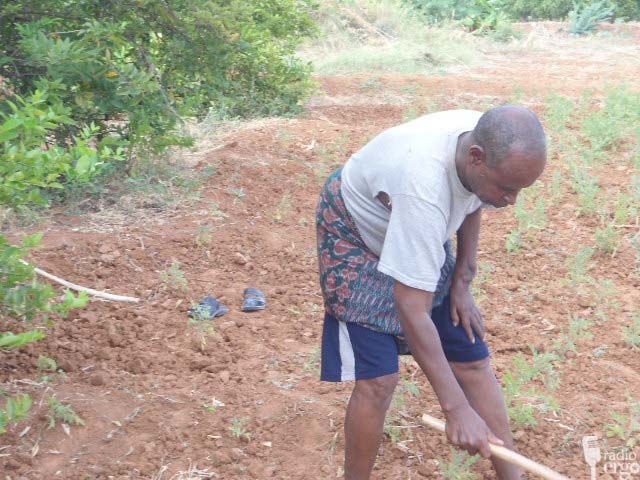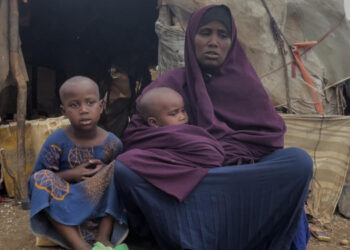(ERGO) – When her parents separated earlier this year, 23-year-old Laki Abdirahman Mohamed became the sole provider for her family in Hargeisa, Somaliland’s capital, taking responsibility for her eight younger siblings.
Laki was forced to drop out in her second year of secondary education when her father stopped supporting the family. To keep her household afloat, she began working as a cleaner for city families in March.
She earns $110 a month, and spends $45 on rent and water for the two-room house where she and her siblings live. The rest is used for food, clothing, and other basic needs.
“It is enough for me and my family, thank god. This work provides us with the most important things we need. What pushed me was the need to help my family. I couldn’t just watch the suffering they were going through. At first, I started work in a household where I was paid $50, and now I found another where I get $60,” Laki told Radio Ergo.
She works 10-hour shifts every day of the week and sometimes their meals are meagre although she strives to ensure her siblings do not go to bed hungry. She would like a better-paid job, but every vacancy she has tried to apply for requires certificates.
“The biggest challenge I face is being the only person everyone depends in the family. I work for people I don’t know and have never seen before. Sometimes I go to work while I am sick and can’t skip it, just to support my mother and my siblings,” said Laki.
Her parents’ separation in February left her mother at home without an income. Laki had hoped to finish at Gacan-libah Secondary School and study engineering. She has not given up on the dream.
Hargeisa teenager, Nimo Ali Hassan, left Biyo-dhacay school last September and in March started work at a local business. She now earns $140 a month that feeds the family and keeps her four younger siblings in school.
“If I went back to school the place I fill for my family would be empty. Lack of means forced me out of education and there was no way to continue. I left in Grade 7 just before entering Grade 8. If I can, I will return, but I have fallen behind in both secular and religious studies,” she said.
Nimo, 17, is the household’s sole breadwinner after the death of her father. Her mother ran a small roadside vegetable stall that failed. Though Nimo’s income does not cover everything, it keeps them afloat.
“Managing my family means a great deal to me. I can’t fill everything, but I contribute what I can. This year everything is expensive, yet I provide what I can. My family depends entirely on me — where there is a gap I must fill it. I cover part of it, and Allah covers the rest,” she told Radio Ergo.
Nimo said she paid $20 to secure her current job after being repeatedly turned away where a guarantor was required. She had to use informal intermediaries who connect jobseekers to employers for a fee.
Many young people who drop out of school complain about the lack of decent work and how economic hardship forces them to choose between education and immediate needs.
Shukri Mohamed, 21, could not continue proceed with secondary school after finishing Adan Dhama middle school and now works as a cleaner in a pharmacy.
Her father died when she was young, leaving her mother unemployed and without income. As a result, Shukri has become the main breadwinner for her family.
She works every day from late afternoon into the night earning about $100 a month — far short of the needs of her seven-member household, who live on the outskirts of Hargeisa, where access to piped water is limited.
“Water is the hardest thing to obtain. We live outside the city where there are no pipes, and we must order a water truck three days in advance. They do not provide it on credit or by installments. If I borrow, they will not bring it next month or next week. When it arrives, I fill five drums because everything is used for cleaning and cooking,” she said.
Her family owes $1,200 for a two-room iron-sheet house and a latrine they built earlier this year on land they own. The supplier of building materials keeps demanding his money, while the family has been unable to begin repayments.
Across Hargeisa, such young women often become the backbone of households in times of crisis, shouldering heavy work and responsibility for large families, and sacrificing their own education.










